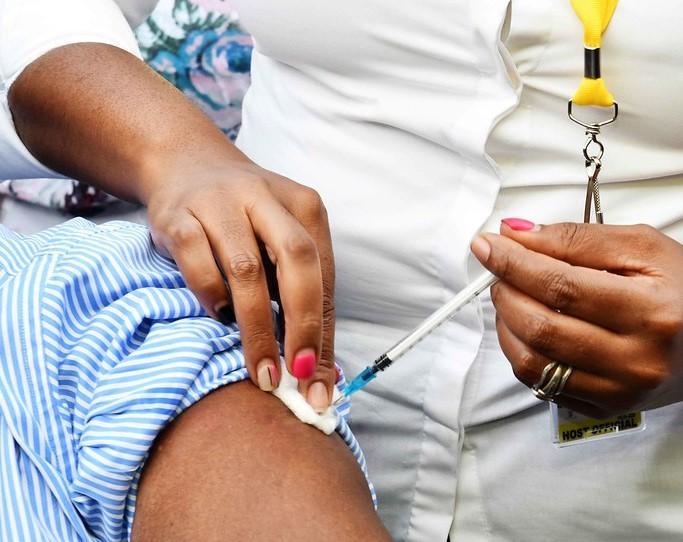A team led by US Food and Drug Administration (FDA) researchers studying Medicare claims data during the early Omicron SARS-CoV-2 variant months conclude that a third dose of mRNA COVID-19 vaccine provides significant protection against hospitalization and death compared with two doses but wanes substantially after 4 months.
The research, published today in the Journal of Infectious Diseases, was based on data from 8.1 million community-dwelling Medicare Fee-for-Service beneficiaries ages 65 years and older who received a second or third dose of the Moderna or Pfizer/BioNTech vaccine from December 2021 to March 2022. Of all eligible beneficiaries, 73.3% received a third dose of the original mRNA COVID-19 vaccine by the end of the study period.
77%, 73% effective 14 to 60 days postvaccination
Fourteen to 60 days postvaccination, third-dose Moderna relative vaccine effectiveness (RVE, compared with two doses) against hospitalization was 77.2% (95% confidence interval [CI], 76.0% to 78.4%), and Pfizer/BioNTech RVE was 72.5% (95% CI, 70.8% to 74.0%). The added benefit was high for 61 days to 4 months (Moderna RVE, 42.1% [95% CI, 37.5% to 46.3%]; Pfizer RVE, 51.0% [95% CI, 48.0% to 53.7%) but waned substantially thereafter.
Participants with a previous medically attended COVID-19 diagnosis derived substantial protection against hospitalization after a third vaccine dose for 14 to 60 days (Moderna RVE, 71.1%; 95% CI, 62.6% to 77.6% and Pfizer RVE, 65.5%; 95% CI, 55.1%, 73.5%). Both vaccines still provided a benefit—albeit waning—for up to 120 days in these patients.
A third dose of Pfizer was only 5.4% effective against hospitalization after 120 days for those with a previous medically attended COVID-19 diagnosis, while Moderna provided a greater benefit for this group at that timepoint (RVE, 43.1%). The benefits were similar across all age-groups and both sexes and were observed more in participants with weakened immunity than in those with healthy immune systems.
Moderna more effective against hospitalization
A three-dose Moderna vaccine regimen was more effective against COVID-19 hospitalization than the Pfizer regimen at 14 to 60 days (RVE, 35.2%; 95% CI, 30.2% to 39.9%), 61 to 90 days (RVE, 40.6%; 95% CI, 36.5% to 44.6%), and 91 to 120 days (RVE, 34.8%; 95% CI, 29.0% to 40.2%).
With more recent formulations of COVID-19 vaccines and new dominating SARS-CoV-2 variants, additional studies that investigate waning effectiveness of COVID-19 vaccines are needed to inform the design of future vaccination programs, especially for high-risk individuals.
"Our observed differences between brands could be partly due to the higher dosage of Moderna (100 µg [microgram] for the third-dose primary series for certain immunocompromised individuals and 50 µg for the first booster dose for the general population) compared to Pfizer-BioNTech (30 µg) vaccines," the study authors wrote.
There were no significant differences in effectiveness against COVID-19 hospitalization between brands after 120 days following a third dose (RVE, 7.5%; 95% CI, 0.9% to 15.2%). But more severe outcomes such as death and in-hospital death showed significant differences in effectiveness between brands 14 to 90 days after a third dose.
"With more recent formulations of COVID-19 vaccines and new dominating SARS-CoV-2 variants, additional studies that investigate waning effectiveness of COVID-19 vaccines are needed to inform the design of future vaccination programs, especially for high-risk individuals," the researchers wrote.



















